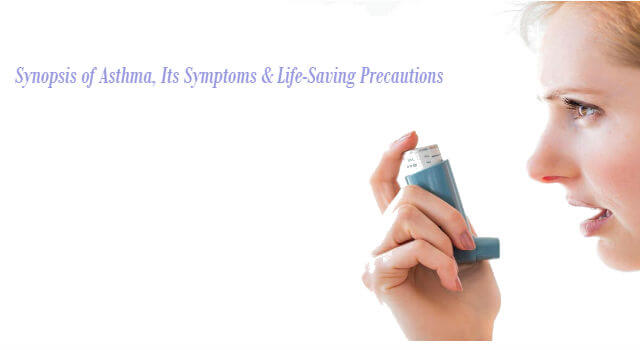Evidence of people who have Asthma has become more common these days. According to Global Asthma Report 2014, approximately, 300 million people globally are registered with asthma every year, while more than 250,000 annual deaths are attributed to this incurable disease.
“Monitor your Asthma Nascool Peak Flow Meter“
Table of Contents
What Is Asthma?
In medical terms, Asthma is a chronic health disease in which the airways that transmit air to the lungs are inflamed and lessened. The inflamed airways slowly become more sensitive and start reacting to environmental substances which inhaled through the air. When the airways retort, they puff up and thin and start producing extra mucus, all of which hold back air to flow to the lungs. This life-threatening disease blocks the airflow in lungs, which results in severe health conditions and sometimes death also.
However, having a general idea about the disease, its symptoms and precautions can help you save lives in crucial situations.
“Also Read: Health Benefits of Ashwagandha“
Symptoms of Asthma & Important Precautions
In some cases, asthma comes with loads of symptoms when for some; it works as a silent killer. If you are unknown about the symptoms of asthma and the precautions for preventing it; here is a brief guide for you.
General symptoms and signs of asthma include:
- Troubled sleeping
- Excessive Coughing, especially during bedtime, exercise or when laughing loudly
- Difficulty in breathing
- Tightness in chest
- Shortness of breath
- Wheezing
- Increased difficulty in breathing
Not all people with asthma experience all the symptoms mentioned above and experiencing these symptoms doesn’t always necessarily mean that you have asthma. However, the best way to diagnose asthma is to go for a lung function test, a physical examination, and a detailed review of medical history including kinds and frequencies of symptoms.

Precautions for Asthma
- Asthma has no treatment and no cure. However, with some basic idea about Symptoms of Asthma & Important Precautions can help you prevent this disease to a great extent. Here is a step-by-step plan which can assist you in preventing risks of asthma attacks and living a quality life.
- Monitor your asthma symptoms and mention them in an asthma diary for several weeks, detailing all the ecological and emotional factors that are connected to asthma. Regular monitoring and controlled treatment can help you fight off asthma risks efficiently.
- If you have asthma, don’t be indecisive about consulting an asthma specialist doctor. With the help of physician and your health care team, make a detailed plan for medication intake and managing an asthma attack. Don’t forget to follow the plan properly.
- People with asthma need to identify asthma-triggering allergens, irritants, and factors, right from pollen and cold air to polluted air, molds, and dust mites and avoid them as much as possible. Use a mask while taking outer trips.
- If you have asthma, don’t forget to get immunization for flu and pneumonia. Staying in progress with vaccinations can put off influenza and pneumonia from causing asthma flare-ups.
Lastly, Asthma if left untreated or unattained, can take life and know these Asthma Symptoms & Precautions can help you live happily with your condition while preventing the risks of asthma attacks.












